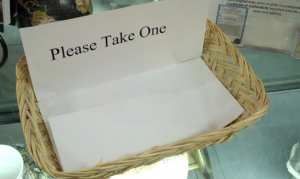Billy Coffey's Blog, page 32
March 28, 2013
Every season

image courtesy of photobucket.com
I’m standing on my front porch in the early a.m., as is my habit before starting the day. A cup of coffee and a view of the neighborhood serves as my morning news, and it’s all the news I need. The mountains and the creek are right where I left them last night. I need that assurance. It reminds me that even if the world’s a mess, the mountains and the creek are still here and so am I.My eyes wander to the flower beds below me, and then to the green something poking up from the mulch and dirt. To me, flowers have always been like people I meet once and then again months later—I can place what they look like but can’t seem to remember their names. So ask if me if we have roses and daisies and begonias, and I’ll answer no. I will say, however, that we have red flowers and white flowers and pink flowers.
But these green things shooting up from the earth? These I know.
Tulips.
The tulips are the first spring flowers to sprout around here. Which to me makes them much more than just a plant, but a vital part of nature’s calendar. When you begin to see tulips, you know better times are at hand. No more cold, no more snow, no more gray skies and bare trees. Everything is about to be make new again.
Seeing that first tulip means I’ve made it. That I’ve survived one more long and dreary winter.
That’s how it usually is, anyway. But as I stand there staring down at this first true sign of spring, all the joy and peace I know I should be feeling isn’t there.
Because I’ve cheated, you see. These aren’t the first tulips I’ve seen this year.
The local nursery is owned by relatives of mine, Mennonites with green thumbs. They can grow anything. And thanks to the modern marvels of both science and climate controlled greenhouses, they can grow anything at any time. Even in the middle of the worst winter I could remember.
So in the middle of January and our third consecutive snowstorm, I stopped one day to say hello and buy some tulips. Things were getting pretty blah at that point, and so was I. I was tired of having to endure and scrape by. Tired of the sadness and outright heartache that winter always seems to bring.
I needed an act of defiance. A symbol of hope.
So I brought the tulips home and sat them right in front of the window. I’d stare at them as the snow fell and thumb my nose at Old Man Winter. When they died, I bought more. And then more. I’ve had tulips for about two months now in an effort to thwart the one barren and agonizing season I dread most.
It’s worked, too.
Maybe too well.
Because as I look down upon this miracle of God below me, it doesn’t seem like a miracle at all. It just seems like a tulip.
The rusty tumblers of my mind click into place and open, revealing a very important truth. I had wanted to skip a season. Winter and I have never gotten along, so I thought keeping a steady supply of spring on hand would cheer me. I was right about that. I did.
But I never considered the consequences of having those flowers by the window. I was so consumed with the now that I dismissed the later. I surrounded myself with a symbol of joy and warmth for so long that it became the same old. My tulips lost their luster not by becoming rare, but by becoming familiar.
Which is why next year I think I’ll leave them at the nursery down the road. I’ll let someone else give it a try. I will instead take the seasons as they come. I’ll revel in the sunshine while I have it and then stumble through the months of cold and gray as best as I can.
We’re not meant for perpetual joy, I think. There are seasons in the world and there are seasons in us, and each have their own purpose.
We are made for winter as much as spring. Made for tears as much as for laughter.
And we are here not just to dance, but to endure.

March 25, 2013
Waiting on a miracle
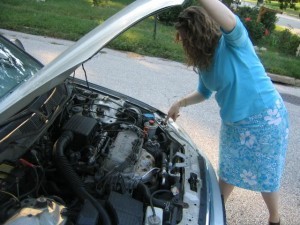
image courtesy of photobucket.com
She stands in the parking lot flashing the universal sign of hopeless surrender—arms crossed, head down, foot tapping. Beside her is what remains of her car, a once useful tool that is now dead on arrival. She’s figured out how to raise the hood and prop it up. Unfortunately, that seems to be the extent of her mechanical know-how.
So I walk over and say, “Afternoon, ma’am.”
“I’m not so sure about that,” she says. Then, as if to clarify, she points to the open maw of her sedan and says, “Stupid car.”
“Someone on the way?” I ask her.
“No. Can’t get hold of anyone.”
I nod. “Mind if I take a look?”
“Be my guest.”
I peek under the hood and check the usual suspects. Battery cables are good. Belts are fine. Plenty of coolant and oil.
“Will it turn over at all?” I ask.
“It acts like it wants to start,” she says, “but then it get stubborn.”
I step around her, climb into the driver’s seat, and turn the ignition. The car sputters and churns, then dies.
“Huh,” I say to no one.
Then, just as I’m about to give up, I check the gauges. Temperature, battery, and oil pressure won’t tell me much if the car isn’t running, but the last gauge will.
“I think I know what’s wrong,” I say.
“What is it?”
“You don’t have any gas.”
There is a pause, then a very quiet, “Oh.”
I climb back out. The two of us stand over the car like it’s a casket at a wake.
“Want me to call the gas station?” I ask her. “Maybe someone can run a can of regular down here. Or I could go get you some.”
She doesn’t answer me, which isn’t so strange. But she raises her face and hands skyward, which really sort of is.
“In the name of Jesus Christ the Risen Savior, I command this car to start!” she screams. Then she looks at me and says, “Try it.”
“Ma’am?”
“Try to start it again.”
The thought occurs to me that I am in the presence of a crazy woman.
“Everything is possible with the Lord,” she says, Lord coming out as Lawd. “I prayed in faith, and if faith can move a mountain, then it can sure get my car started and get me where God needs me to be. So try to start it.”
“Um, ma’am,” I say. “God ain’t gonna put gas in your car. Havin’ faith doesn’t mean you have to lose your head.”
“TRY. IT.”
Okay, fine.
I climb back into the car and turn the ignition. Nothing.
“Maybe you should be the one turnin’ the key,” I say through the windshield. “I reckon I just don’t have enough faith.”
“Fine,” she says. “Step aside.”
I do. She tries. No go.
“Would you like me to go get you some gas, ma’am?”
“No,” she says. “Thank you, but I’ll wait. God will send someone along.”
I let the fact that I just might be that someone slide, told her I was sorry and to have a good day, and left. As I pulled out of the parking lot I looked in the rearview mirror. She was standing in front of the car with her hands to the sky again, no doubt casting out the demons of fuel consumption.
Maybe I’m being too hard on her, I think to myself. But then again, maybe not. Because not only did that lady waste about fifteen minutes of my life, she also set a pretty bad example for Christians.
Yes, God can do anything. And yes, faith can move mountains. Put the two of them together, and I wouldn’t be a bit surprised if somewhere in the history of humanity, a car managed to get where it needed to go without any gas.
But that’s not the norm.
Sometimes I think we count on a miracle too much. That sometimes we trust and believe that God will provide so we won’t have to do as much as He expects from us.
Because God is more than willing to get us where He needs us to go, and faith will help get us there.
But it’s up to us to make sure the tank’s full.

March 21, 2013
Affecting the world
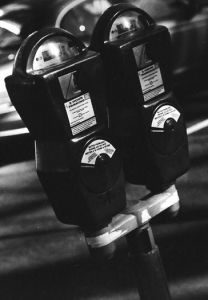
image courtesy of photobucket.com
There are stories I found and stories that have found me. As I sat at the small table outside the local coffee shop, I decided this was a story that found me. And I’m glad it did. I was also glad I was paying enough attention to see it, because it almost passed right by me.
The principal character was your stereotypical little old lady. Seventy-ish. Gray hair and a neatly pressed dress that was the sort of yellow that said Hello Spring! Making her way down the sidewalk in front of me.
The years had not been so kind to her, I noticed. The stoop in her posture gave the appearance that she was about to fall headfirst into the pavement. It was an accident waiting to happen that may have only been averted by the slight limp in her right leg. Yet she managed to not only make her way, but to do so with a smile on her lips and a heartfelt “Good morning!” to anyone in her path.
She would pause in her walk just long enough to offer one of those helloes and to look at the parking meters evenly spaced to her left. The distractions of both people and technology were enough to guarantee added minutes—and quite possibly hours, I considered—to her journey from wherever she came from to wherever she was going. And yet the thought crossed my mind that this was a person unconcerned with neither distance nor time. The destination wouldn’t matter if no enjoyment was had along the way.
She jumped when she came upon the third parking meter and looked around as if some great catastrophe was about to occur. Then she squared up in front of it like an old West gunslinger ready to draw. Instead of a six shooter, out came a coin. Into the meter it went. She waited for the click that guaranteed more time, patted the machine on the side like she would her grandson’s face, and walked on.
Next down the line was a young lady who had walked out of the courthouse not twenty minutes earlier. I had seen the yellow sheet of paper she was carrying and could only assume what was written on it constituted much more bad than good. She slumped against a newspaper box and lit a cigarette, then watched her exhale float up and disappear, no doubt wishing her troubles would do the same. There she had stood ever since, waiting for the miracle of either a better life or a quicker death.
The little old lady paused beside her and spoke. I couldn’t hear what was said and so tried to convince myself it didn’t matter. I had the feeling they were simple words and not profound. A comment about the beautiful day, perhaps, or maybe a short hello.
Regardless, a few moments later the old lady waved and left, continuing her curvy path toward me. The young lady watched her go and finished her smoke.
And then something curious happened.
Just as she stepped on the remains of her cigarette, the young lady smiled. A big, toothy smile. The best sort of smile.
“Good morning, young man,” the old lady said as she passed.
“Good morning, ma’am,” I answered.
She continued on, eyes forward and not back, content to watch what was around her rather than behind. Which was a tragedy, really. Because not only did that nice old lady miss the smile she put on that young girl’s face, she also missed a young man’s reaction when he sprinted out of a nearby shop sure he would find a ticket on the windshield of his car, but confused to find instead plenty of extra time left on his meter.
Yes. Quite a tragedy. Life was full of tragedies, I thought. Like the misfortune of hurrying or the heartbreak of circumstance.
But at that moment I realized what may be the biggest tragedy of all—that we can always see the effect of this world upon us, but rarely the effect of us upon the world.

March 18, 2013
What makes us laugh
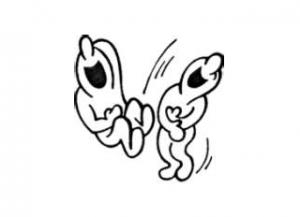
image courtesy of photobucket.com
In town on a very warm and very bright Saturday:
My family is parked at a picnic table outside the local ice cream shop, slurping down all manner of frozen treats. The shop is busy. People mill about, eager to partake in a ritual designed much more for spring than winter.
Some are more eager than others. Our eyes settle upon one man in particular who has summoned the courage to order three dips of chocolate ice cream on his cone. He pays and does his best to balance his desert until he can get to the table near us. Halfway there, though, his hand goes left while the ice cream goes right. The entire thing, cone and all, takes a ride down the front of his white shirt.
I snicker, which turns into a chortle, which turns into the sort of involuntary shaking that comes when you can’t help but laugh but don’t want to be seen laughing. My kids laugh, too.
The same very warm and very bright Saturday, but later:
On our way into the grocery store, we’re met by a woman carrying no less than five shopping bags making her way toward the parking lot. She’s trying but not quite able to see where everything is—her car, the traffic, a neighbor who says hello. She doesn’t see the rock in front of her, though. The one she trips over. She tumbles, spewing everything from hamburger to washing detergent.
My kids snicker, which turns into a chortle, which turns into the same sort of involuntary shaking they saw their father succumb to earlier at the ice cream shop.
I, however, don’t laugh. And I tell them they shouldn’t, either. Then I explain the difference between someone having an accident that could hurt them and someone having an accident that could just embarrass them. They stare at me. It’s tough having to explain the subtleties of humor to your children.
I’ve pondered about my children’s laughter since. Not that there is so little of it or even so much, if there is such a thing. No, what I’ve been thinking about is what they laugh at. What they think is funny.
Such a thing seems important to me. I think what makes us laugh says a lot about the sort of people we are.
If that’s true, then I would suppose my children are typical. What makes them laugh? Any sound emanating from any orifice on the human body. Boogers? Funny. Sneezes? Funny. Sneezes that produce boogers? Comedic gold.
But the scene at the grocery store bothered me. Partly because I was afraid I’d put the notion into their heads that such a thing was laughable, but partly because I’ve always been aware of the thin line between what should be funny and what shouldn’t.
The Bible never mentions Christ laughing. It mentions Him crying, of course, but never giggling. And though it may seem strange to say that God can giggle, I’m willing to bet that He can and does. Often. I’m sure Jesus had a great sense of humor. I’m sure He laughed. I think it was a pretty big oversight not to include that in the gospels. Knowing what Jesus found funny would come in handy to parents.
The question of whether we should find cause to laugh in this life is one that I think never needs asking. As dark and dreary and frightening as the world can be at times, there is an equal measure of light and beauty and anticipation. I like to think that no matter what our circumstances or worries may be, there is always plenty to be joyful about if we go looking for it.
A day without laughter is a day lost. It means that in the ongoing struggle between the hope we all seek and the despair the world seems intent upon handing us, the world has won.
That’s what I want my children to know.
But I want them to know this as well—much of the humor they’re privy to is merely hate wrapped in a punch line. It drips meanness. It lifts our spirits but tarnishes our souls. It isn’t nectar, it’s sweet poison.
I’m going to make it a point from now on to watch what I laugh at. To pay attention. To be a better dad.
Because I have a sneaky feeling that a lot of what makes me laugh would make God cry.

March 14, 2013
Empty years
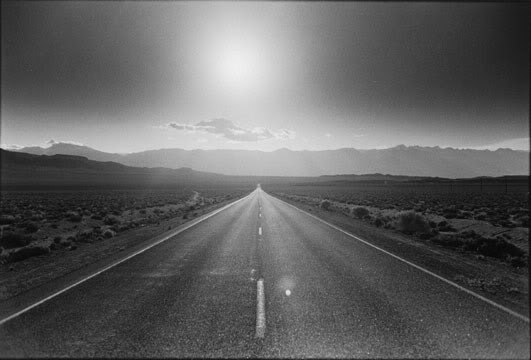
image courtesy of photobucket.com
You reach a point when there’s enough behind you that it warrants a looking back. I’ve caught myself doing a little of that this past year. I’m forty now. That’s the sort of age that lends itself to a certain amount of introspection. I figure if all goes well, I’m somewhere close to the fifty-yard line of my life. It’s important to know from where I’ve come and to where I’m going.
The problem with looking over my shoulder is what’s staring back at me. If I’m honest, I’ll say I should be a little farther along than I am. I couldn’t imagine forty when I was eighteen. It was an age I painted in broad strokes and mixed colors. And yet even with that in mind, I’ve fallen short.
It’s all that empty space, you see. Giant chunks of years I spent doing large amounts of nothing. My past seems a waste for the most part, a long string of failures best defined by equal amounts confusion and ignorance.
I worked down at the town gas station for ten years after I graduated.
Spent five more at the factory.
I’m on year six of an occupation that offers little in things like pay and advancement, but those shortcomings are more than made up for in stress and labor.
That’s twenty-one years all together. No wonder I walk around feeling like I’m playing catch-up.
I’m not alone in all this. I know plenty of other people who feel much the same way. We work hard and save what we can and still feel like a gerbil on one of those wheels that spin and spin and never go anywhere. Makes you wonder what it’s all about.
I was talking all of this over with a preacher friend of mine the other day. Smart guy, as most of them are. He’s older, which meant he knew exactly where I was coming from. And when I was done talking, this is what he said:
Jesus didn’t do much of anything for about twenty years. It doesn’t really feel right, saying that. I don’t mean to imply the Lord was lazy in any way. Bu the preacher supposed that if Christ had done anything worth mentioning between the time he left his momma and daddy to head home from Jerusalem without him and the time he called his disciples, someone would’ve said something. But the Good Book is silent on such things. No one knows what exactly Jesus was doing all those years.
That’s why you’ll find all those legends and lost gospels saying how he went to Egypt or India, or how he liked to make living sparrows out of mud. And while I can understand the allure of such things, the preacher thought it better that the Lord simply lived a quiet life back then. He rose up every morning and went to work. Helped his daddy build a door or a chair, maybe, or did his part with the household chores. He went home at the end of the day and broke bread and talked and laughed, and then he went to bed knowing the next day only promised more of the same.
But the preacher also told me all those empty years weren’t for nothing. Sure, the three or four years after were more exciting. Those were the ones filled with miracles and intrigue and a rising from the grave. But none of those things could have happened were it not for those quiet years before. That was the preparation. The getting ready.
I like that.
That’s why I’m going to try and reconsider my own missing years. I’m going to try and look upon them in a new way. Because really, is there anything quiet when it comes to God? Any moment without purpose? Anything in even the smallest life that could be considered as lost or missing?
I think not.

March 11, 2013
Big bad world
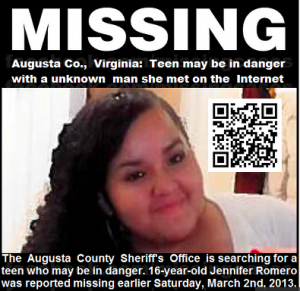 The big news here in the county is the young girl gone missing. The picture I’ve seen in the paper shows her smiling, happy, her head cocked a bit to the side so her long hair spills. She disappeared a little over a week ago. Police traced her cell phone to northern Virginia until it was turned off. Her Facebook account was deactivated a bit later. The county sheriff says she’s likely been lured away by someone she met over the internet. Facts are few and closely guarded, but as I write this the signs point to human traffickers. Authorities believe she is still in the state. I hope that’s true. I hope she comes home. And yet every day she doesn’t increases her danger. In another week’s time, she could be anywhere in the world.
The big news here in the county is the young girl gone missing. The picture I’ve seen in the paper shows her smiling, happy, her head cocked a bit to the side so her long hair spills. She disappeared a little over a week ago. Police traced her cell phone to northern Virginia until it was turned off. Her Facebook account was deactivated a bit later. The county sheriff says she’s likely been lured away by someone she met over the internet. Facts are few and closely guarded, but as I write this the signs point to human traffickers. Authorities believe she is still in the state. I hope that’s true. I hope she comes home. And yet every day she doesn’t increases her danger. In another week’s time, she could be anywhere in the world.
It took me a bit to write that first paragraph. I kept going back over it, looking at the words. Not editing or revising or anything else that people who call themselves writers like to say they do, but because I have a daughter myself. Because such a thing could happen even in my quiet corner of America. But such is our world now. It has claws, and their reach is long.
When I sat down to write a post, it wasn’t going to be about this story. I planned to do the usual and find some tiny facet of my life that held some greater meaning. That’s what I do. I put on my hat and play the blogosphere’s version of some spiritualized Duck Dynasty. I tell you there’s hope even when there seems to be none, that god is watching and His angels are guarding and that no matter who you are and what you wish to become, you are more and made for greater. All those things are true. I believe them with everything that’s in me.
But above all I am also honest with you, dear reader, and so I will honestly say right now life feels a little dimmer. Perhaps it was the story of the missing girl. But maybe it was more than that. Maybe it was all the other stories I’ve read and seen in the last week, tales of hurt and want and greed, accounts that prove we as a nation have forgotten ourselves.
It’s been said that the good times we all long for never really happened, that things have always been as bad as they are right now. I think there’s truth in that. I also think the utopia some try to build through government will never happen. We can cure cancer and talk to someone on the other side of the world and reach other planets, but in the end we can’t fix our own sin, we can’t talk to our own neighbors, and we’re strangers to the ground beneath us.
We are all broken, in need of grace. That’s what I’ve learned this week. And I’ve learned that if there is any hope for this world at all, it will come not only through Christ, but through Christ in us. The bad things in the world happen in large part because the good people in the world allow it.
Maybe that’s my point. Maybe. But maybe the greater point is that at this moment there is a frightened little girl somewhere in the world who screwed up and just wants to come home. I’m sure she would appreciate your prayers.

March 7, 2013
Please take one
image courtesy of google images
The toy store downtown is one of those mom-and-pop deals that you can get lost in, the sort of place where you can find things that Toys R Us would never think of stocking. Good things. Great things. Things that really, really make me wish I were a kid again. Which makes shopping there both a pleasure and a curse. A pleasure because there is so much I’d like to get my kids for two weeks of chores well done. A curse because I can’t make up my mind what to get them.So, there on a Wednesday during lunch, I wander. And in my wandering I happen to spot a Longaberger basket sitting atop a wooden display of toy soldiers (Toy soldiers, I think to myself. My son would love some toy soldiers).
In the basket is a pile of those long, thick pretzel sticks. The sign above them says PLEASE TAKE ONE.
Given the fact that it’s lunchtime and I’m hungry, that’s exactly what I do. I take one and munch while I walk. Through the Legos, the building blocks, the books, the dolls. Through the Tonka trucks and coloring books and Play Doh.
And I am back to where I started. At the basket of pretzels.
Still unsure of what to buy and still hungry, I decide to restock and take another trip around the store. I reach into the basket for another pretzel. And as I bite it, I see something out of the corner of my eye.
Standing beside the stuffed animals about four feet away is a little boy. Sixish, not much older than my son, and staring. At me. He holds out one fist and raises his index finger.
One, it says.
I wrinkle my eyebrows, unsure of what his attempt at sign language means.
One, again.
“What?” I ask him (which actually came out as “Wamp?” because I hadn’t swallowed yet).
“You took two pretzels,” he says.
“So?”
“You’re only ‘posed to take one.”
“Who are you” I ask, “the pretzel police?”
“It’s what the sign says,” he states, now using his index finger to point. “Mama said the sign says ‘Please take one.”
I look at the sign, then back to him. “No,” I answer, “the sign says ‘Please take one.’ There’s a difference. It’s all a matter of emphasis.”
“What’s empkasis?”
“Never mind,” I say.
“You shouldn’t have taken that pretzel. Mama says God watches us.”
My mind takes a sudden detour to those old Disney movies, where the older, bigger kid was always accompanied by Jiminy Cricket, Mr. Disney’s version of a conscience. I’m starting to think this kid is my Jiminy Cricket. Or maybe just aggravating. I haven’t made up my mind yet.
“Your mama’s right,” I answer, wondering where in the world his mama was. “But since God knows the sign says ‘Please take one,’ I think I’m in the clear.”
“Please. Take. One,” he corrects.
There we stand in the middle of the store, staring down one another like two gunslingers in a Western wondering who would draw first.
PLEASE TAKE ONE. An invitation to me, a rule for him. Which was right? I’m not as sure as I was a few minutes ago.
How do we decide who is right and who is wrong? Easy.
Go ask the owner of the store.
“Excuse me,” I say to the nice lady behind the counter. “I was wondering if you could shed a little light on a problem this youngin’ and I are having.”
She perks up and joins us, happy to have something to do.
“We were wondering about this sign here,” I say. “Is it please take one, or please take one?”
The owner gives us both a strange look. “Well, I’m not sure. No one’s ever asked.”
“It’s preyin’ on our minds, ma’am,” the boy says.
“Preyin’,” I add.
“If you’d like a pretzel,” she says, “please take one. If you’d like another, you can take one, too.”
Excellent.
“Can I have a pretzel?” the boy asks.
Situation resolved, the three of us part ways. Him to his mother, who had been preoccupied with the books, the owner back to the register, and me to finish my shopping.
Funny, I think, how three words led us this far. But I am sure of this: if two people can disagree over something as simple as pretzels, it’s no wonder why we disagree over the important things even more—politics and God, right and wrong, war and peace.
Who’s to know which is right and which is wrong? Or even if there really is a right and wrong? How do we settle our differences, put away our prejudices, and find the truth?
Maybe, I thought, we should all do what that little boy and I ended up doing.
Maybe we should all go the Owner of the store and see what He says.

March 4, 2013
Eternal spring
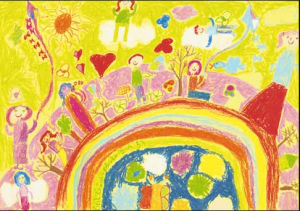
image courtesy of bing.com
I’m standing in front of a wall at the Kluge Center, an offshoot of the University of Virginia’s Children’s Hospital. My family and I travel here every three months so the friendly doctors and nurses can do some unfriendly things, namely poking and prodding my daughter to make sure her diabetes is still under control.
I’ve never been a fan of hospitals. They tend to be drab and dark and they have a smell that can only be described as suffering. But it’s refreshingly different here. As this facility is exclusively for children, there are bright colors and fish tanks and a huge playroom complete with a Helen, the nice lady who doles out to the patients construction paper, crayons, and plenty of oohs and aahs.
I’ve come to learn that sometimes you have to be a good actor in order to be a good father. You have to embellish from time to time. You have to sometimes convince your kids that some things are fun when they most definitely are not. Things like school. And broccoli. And coming here to get poked and prodded.
But my little girl’s a trooper. She’s tough (like her old man) and also soft-hearted (also like her old man). She must live twenty-four hours a day with a disease that has no cure and can at a moment’s notice strike, but she also wears a perpetual smile and thinks God gave her diabetes so she can write books for diabetic children. Still, it’s not fair that my daughter has to suffer through this. Not to me. Not fair that her tiny arms are bruised by four shots a day and her fingers pocked by the scars of glucose checks.
The sound of her laughter turns my head. She and her little brother are playing in the big plastic castle that is part of the playroom. She’s the princess in distress, and he’s the knight trying to save her from the dragons. My job usually–saving her from the dragons. But the ones I’m protecting her from are real.
I go back to studying the wall. Which, as it turns out, is really a window. But the view of the grounds and the railroad tracks across the street has been replaced by a better one. Taped to the window is artwork from the tiny patients who pass through here every day, many of whom are afflicted with things far worse than my daughter’s broken pancreas. Though her diabetes is incurable (and let’s all pray that will change), it is manageable. Medical science has come a long way, and I at least have the comfort of knowing she can lead a somewhat normal life. For some of the children who colored these pictures, that’s not the case. And that makes staring at them much harder.
What kind of a world do we live in where children are stricken with disease and die? Where the most innocent of people suffer? It seems so unfair. So…wrong. We all have a right to live. A right to grow and learn and love, a right to create a life for ourselves and find our God-given purpose. But that’s just not going to happen for some of these children. What’s worse is that many of them realize this.
But I’m puzzled. Confused by the knowledge that though many of them know the realities of their lives, they are still joyful. These crayon-scribbled pieces of paper do not convey a sense of despair, but of joy. These are not obituaries, but love letters to life. Rainbows of every color shoot across the pages of many. Sunshine beams down on brightly greened grass. Flowers sprout and grow in fields of golden hues. Stick figures smile and laugh and hug.
These are pictures of lives embedded in eternal Spring.
Pictures drawn and colored by children who may be dying, but who are more alive than I am.
True, their innocence may be protecting them. Many can’t process what’s happening to them and don’t feel the need to question or blame. What they don’t know can’t hurt them.
A blessing, I think, in this case. To be ignorant of life and death.
And then I spot in the middle of the display a small sheet of paper. Written in pencil are the words of a twelve-year-old girl named Sarah. Words that make me question just how ignorant these children really are, and shame me with both a smile and a tear:
“The world is a beautiful place and everyone should shut up and enjoy it once in a while.”
Yes.

March 1, 2013
Angela versus the Big Bad

image courtesy of google images
I’m settling in at the movies with my popcorn and soda in an attempt to escape the world’s dreariness for at least two hours. Which is strange given that I’m about to watch the latest in a long stream of post-apocalyptic movies in which some Big Bad collapses governments, then societies, then people. Lots of movies like that lately, I think to myself, though I’m not sure why. We no longer cast a hopeful eye toward the future. Which I guess says a lot about our present.
The movie starts and the fifty or so people around me munch and gawk. It’s a good movie, really. At least the first part. Halfway through the picture and just as things start to get interesting the sound begins to slur, the picture wobbles, and the screen goes blank.
A chorus of groans ripples through the theater that is followed by an assortment of exhales, some stretching, and a few snide remarks. I sigh and think that I’ll have to wait to see what the end of the world is like.
Maybe. Then again, maybe not.
Because as I sit among all these people and watch their reactions, I get a very small glimpse of it from right where I am.
The Big Bad in this case happens to be a broken projector. Not really Big and not very Bad, but it has on a smaller scale the same effect as machines taking over the world or nuclear fallout—we’re all confused, and no one quite knows what to do now.
But then personalities take over. The Type A’s shoot for the door and the manager, eager to fix the situation. The sanguines in the room remain in their seats, certain that everything will work out in the end. The more pragmatic folks see the interruption as a chance to take a bathroom break without missing any of the movie. And then of course there are the pessimists now voicing their certainty that they are now out of twenty bucks.
The theater manager inches through the door. He looks to be about sixteen and I get the nagging sensation that up until this moment the only crisis he’s had so far today is losing his newest copy of Gamer magazine. He stands where he can make a hasty exit and uses the ponytailed lady from the ticket counter as a human shield, placing her between us. Still, all eyes are on him. He’s the one in charge.
He whispers to Ponytail and turns toward the mob. This, I think, is his time to shine. This is why he wears the suit.
The manager stiffens as he draws in a massive breath, exhales loudly…and leaves.
Ponytail watches him with a look of shock. Evidently her being hung out to dry had not been part of the conversation. But just as I think things are going to turn into something less than fine, she does the unexpected.
She talks.
And better than that, she doesn’t talk to us. She talks with.
She tells us her name is Angela and that everything is being fixed. She asks how the movie is so far and if we need anything. She talks about her children. She tells jokes and listens to ours. She is kind and thoughtful and attentive, both sharing our aggravation and easing it. And when the movie flashes onto the screen again ten minutes later, I swear, I swear, we’re almost sorry.
Angela stays with us for a few minutes to make sure everything’s fine and then makes a quiet exit.
The action resumes on the screen. Lots of explosions and blood and mayhem. But I’m not really thinking of the movie now. I’m thinking this:
I don’t know what’s coming down the road toward us. I don’t know if there’s some Big Bad or when it will happen or what we will do when it gets here. But I do know this—if and when that time comes, the future of our world won’t depend on governments or gun-toting heroes.
It’ll depend on people like the ponytailed lady who collected my ticket. People who take the bad and make it better.

February 25, 2013
Enough faith
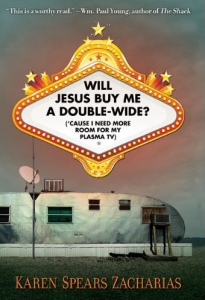 The television is largely ignored around our house for most of the day, but like all good rules it is relaxed after dinner. By then a day’s worth of school and play have left my children with as much energy as a bowl of Jell-O. Sitting on the couch and being entertained by Phineas and Ferb is all they can handle.
The television is largely ignored around our house for most of the day, but like all good rules it is relaxed after dinner. By then a day’s worth of school and play have left my children with as much energy as a bowl of Jell-O. Sitting on the couch and being entertained by Phineas and Ferb is all they can handle.
My daughter is generally Holder Of The Remote when I’m not around, and as my own energy level was Jell-O like yesterday evening, I had mentally checked out in the rocking chair by the living room window, content to watch the mountains rather than the TV.
I rocked as the cool February breeze blew through the open living room window, letting in the fresh air and letting escape the sounds of my daughter’s channel changing.
News: “Unemployment continues to rise across the Commonwealth…”
A preacher on the Christian channel: “…faith can heal you of your greatest pains…”
ESPN: “…spring training in full swing…”
And finally Spongebob: “I’m so cold, I can use my nose drippings as chopsticks.”
Which is where I thought she would stay. My daughter loved Spongebob.
But then it was back to the preacher: “…God loves His children and wants to prosper them…”
I kept rocking, gazing out over the porch to the mountains beyond. A slight smile crossed my face, and why wouldn’t it? My daughter had just passed up Spongebob to learn something about God.
“…He doesn’t want anyone to be sick! Disease is Satan’s doing…!”
Still, it seemed a bit odd. A bit over the top. A bit…
“You’re not healed because you don’t believe!!”
“Dang it,” I said, jumping from the rocking chair and bursting through the door as calmly as possible but not quite. I sat beside her and palmed the remote, changing the channel back to Spongebob with as much nonchalance as I could.
“How ya doin’, sweets?” I asked.
Nothing.
“Wanna watch some Spongebob?”
(nod).
“You okay?”
(nod).
But she wasn’t. I knew that. And I also knew it was too late. The damage had been done.
At bedtime when I went to tuck my daughter in for the night, I could see her tears from the doorway.
“What’s faith?” she asked me.
“Faith,” I said, sitting down beside her, “is believing that God can do whatever He wants.”
“Do you have a lot of faith?”
I’d been father long enough to know that sometimes parents must lie to their children. But I never made it a practice to do so when it comes to matters of faith, so I said, “Sometimes I do. Other times I don’t.”
She looked at me, crying. “The preacher man said I have diabetes because I don’t have faith.”
“That’s not what he said,” I answered.
“He said if I had enough faith, God would take my sugar away.”
I didn’t answer that time. Because again, I couldn’t lie—that’s pretty much what the preacher man had said.
I sat by my daughter’s bed for a long while that night, holding her hand and stroking her hair until the tears left and sleep finally came.
As I gazed down to her I wasn’t thinking about how special she was or how she struggled with her disease. No, I was thinking about how much I would’ve liked that preacher to be there to hear my daughter doubt her faith. I wanted him to see the tears he caused her to shed. And then I would’ve taken him out back and shown him what happens to adults who hurt my little girl.
The whole prosperity gospel movement is still going strong, and there are no signs that it will slow anytime soon. Check the bestseller lists. Turn on your television. They’re everywhere, standing in front of thousands of people in their thousand-dollar suits and pretty smiles, prophesying that God is just chomping at the bit to make you as rich and successful and healthy as they are.
I don’t normally rant, and I never judge. But as I sat there looking down at my daughter, I knew without a doubt that there was a special place in hell reserved for people who manage to contort God’s word to equate faith with wellness and piety with affluence.
I can understand their appeal, I really can. A God who wanted nothing more than to heap material blessings on anyone who paid enough attention to Him makes religion seem a little more palatable. A little more…human. And their theology is mixed with just enough truth to make it seem right.
But if you think it is, if you think that’s how God operates, then I’ll invite you to spend a day with my daughter.
Maybe then you’ll see that God isn’t after our comfort or our health as much as our faith and our trust.


